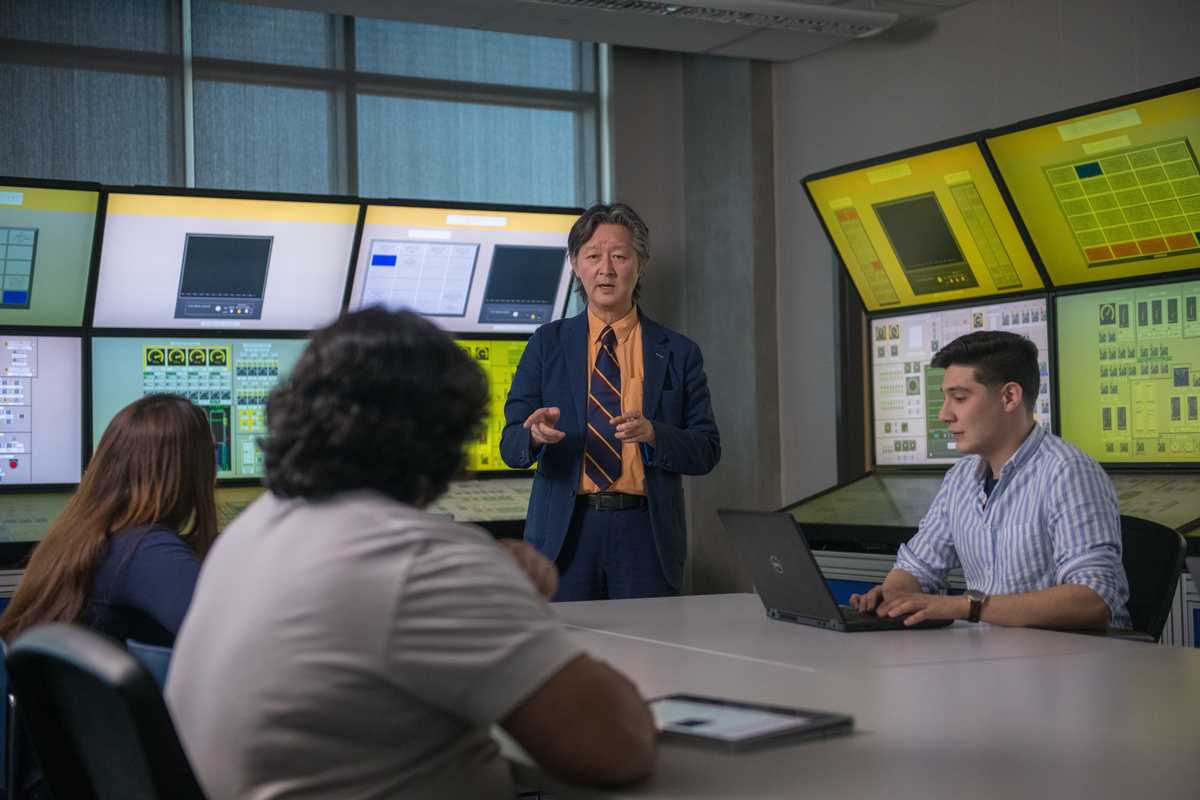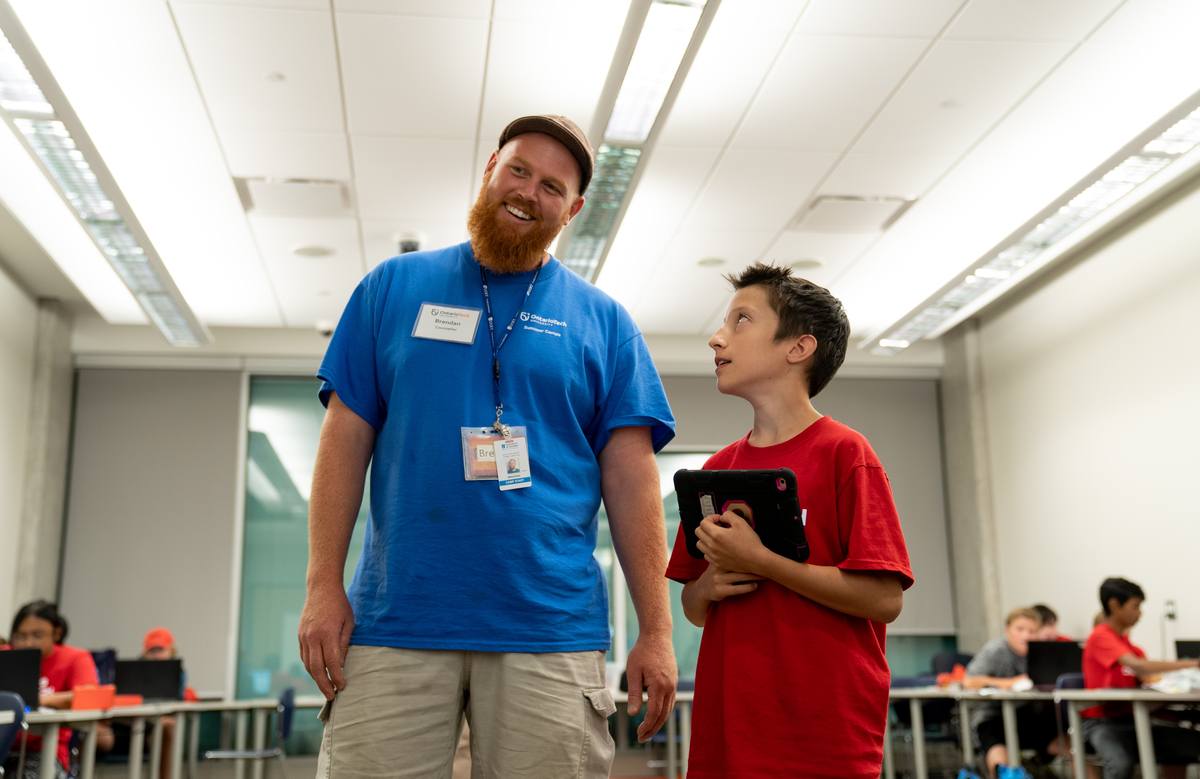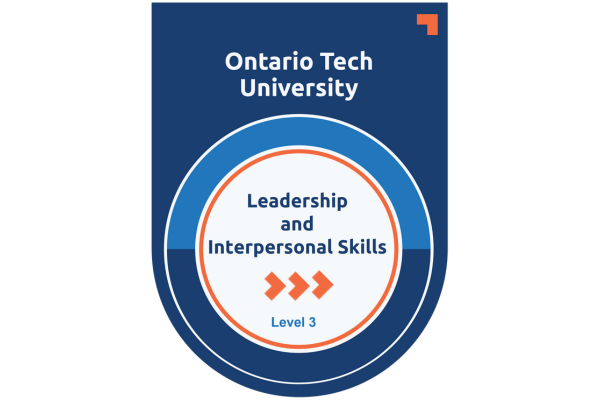
Leading with connection: Mastering relationship building skills for effective leadership
By: Diana Kawarsky (Continuous Learning Instructor)
Effective leadership hinges on the art of connection. Successful organizations rely on strong team dynamics and seamless collaboration. However, the subtle mastery of relationship-building skills empowers leaders to unite diverse talents and achieve collective success. These skills play a vital role in fostering a work environment where loyalty, innovation, and productivity thrive.
In this blog post, we’ll take a deep dive into the art of building relationships as a workplace leader.
What Are Relationship-Building Skills?
Relationship-building skills, also known as “people skills,” are the foundation of successful careers and thriving workplaces. These skills enable collaboration and foster trust, respect, and understanding. They encompass effective communication, active listening, empathy, networking finesse, and conflict resolution.
Mastering these professional relationship-building skills can transform an ordinary workplace into a hub of creativity and innovation, where every employee feels valued and inspired to contribute to the collective vision.
10 Key Relationship-Building Skills to Develop
Here are 10 key skills leaders should focus on developing to become masters at building impactful relationships in the workplace.
1. Verbal and Non-Verbal Communication Skills
Your ability to articulate your thoughts and ideas clearly and your proficiency in reading and responding to others sets the tone for your relationships. Mastering both verbal and non-verbal communication is vital to relationship management.
Effective verbal communication involves:
-
Speaking with clarity and brevity
-
Tailoring your message to your audience
-
Using appropriate tone and pitch
Non-verbal cues can amplify or contradict your message:
-
Maintaining eye contact
-
Using gestures to reinforce points
-
Using posture and body language that signal openness
By being mindful of how you communicate, you can ensure that you send the right signals and encourage open dialogue within your team.
2. Active Listening
Leaders who are active listeners are those who truly understand and value their team. Active listening involves more than just hearing; it requires your full attention and a willingness to understand the speaker’s perspective.
Practice the following active listening techniques:
-
Give undivided attention to the speaker
-
Paraphrase what you’ve heard to ensure understanding
-
Provide feedback that acknowledges the message
By demonstrating active listening, you affirm the speaker’s worth and encourage them to share more openly.
3. Empathy
Empathy is the ability to understand and share the feelings of another. As a leader, empathy is an interpersonal skill that helps you connect with your team members on a human level and shows that you care.
Examples of cultivating empathy:
-
Putting yourself in your team’s shoes
-
Acknowledging and validating their feelings
-
Actively supporting their well-being
Empathetic leaders foster a more inclusive and supportive work environment where individuals feel valued and understood.
4. Conflict Resolution
Conflicts are inevitable in the workplace, but how they are handled makes all the difference. Effective leaders address conflicts head-on and seek to find mutually beneficial solutions.
Strategies for conflict resolution include:
-
Encouraging open discussion
-
Identifying the root cause of the conflict
-
Seeking compromises that address all parties’ concerns
By mastering conflict resolution, you foster a culture of transparency and fairness that builds stronger, more resilient teams.
5. Networking Skills
A leader’s network is their net worth. Strong networking skills allow you to create a web of professional relationships that can offer support and opportunities for growth.
Tips for effective networking include:
-
Attend industry events and conferences
-
Engage in social media networking
-
Always follow up to maintain connections
Cultivating these skills not only expands your professional horizons but also opens up resources and knowledge that can benefit your entire team.
6. Adaptability
In a dynamic work environment, adaptability is crucial. Adaptable leaders can navigate change more easily and offer their team members the same flexibility.
Ways to develop adaptability include:
-
Stay informed about industry trends and changes
-
Be open to new ideas and processes
-
Keep a positive and flexible attitude
Adaptable leaders create flexible teams that can adjust to any situation and are more likely to develop innovative solutions to challenges.
7. Emotional Intelligence
Emotional intelligence (EQ) is a significant factor in building relationships. Leaders with high EQ understand their emotions and can navigate the intricacies of working with others.
To enhance your emotional intelligence, try:
-
Practicing self-awareness and self-regulation
-
Understanding and manage your stress
-
Building upon your empathy and social skills
Leaders with a high level of EQ create comfortable, expressive work environments where emotions are recognized as a natural part of human interaction.
8. Collaboration and Teamwork
Promoting collaboration and teamwork emphasizes that every team member is heard and respected. It paves the way for a culture where ideas are freely shared and built upon.
You can foster a collaborative environment by:
-
Setting shared goals and visions
-
Encouraging inter-departmental cooperation
-
Celebrating team achievements
Leaders who prioritize collaboration build cohesive, high-performing teams that can easily tackle complex projects.
9. Problem-Solving
Leaders who are approachable and contribute to the problem-solving process earn the trust and respect of their team. Effective problem-solving requires clarity of thought and a systematic method to address issues.
To master problem-solving, follow these steps:
-
Identify the problem and its underlying causes
-
Encourage brainstorming for solutions
-
Evaluate and choose the best course of action
By being a master of problem-solving, you create a productive and innovative work environment that can overcome any challenge.
10. Constructive Feedback
Leaders must be able to give constructive feedback that is both informative and supportive. This business communication skill helps to guide and mentor team members toward professional growth.
Key components of constructive feedback include:
-
Be specific and timely
-
Offer actionable suggestions for improvement
-
Recognize and reinforce positive performance
Leaders who can provide feedback effectively foster an environment of continuous learning and development, where feedback is seen as a tool for improvement rather than criticism.
Exploring the benefits of Continuous Learning
The High Impact Communication Skills course offered by Continuous Learning and taught by Diana Kawarsky delves into the essential skills and principles required for effective communication. This course emphasizes the importance of relationship-building as a cornerstone of leadership, teaching participants how to connect authentically with their teams. Through a blend of theoretical insights and practical applications, learners will develop the ability to foster trust, communicate with clarity, and inspire collaboration. By mastering these relationship-building skills, leaders can create a supportive and motivated work environment, ultimately driving their teams towards greater success and cohesion.
Kawarsky, Diana. “Leading With Connection: Mastering Relationship-Building Skills For Effective Leadership”, The Soft Skills Group, 2 Feb. 2024,










